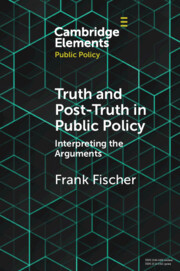Refine search
Actions for selected content:
2 results
3 - The Loss and Damage Policy Landscape
-
-
- Book:
- Governing Climate Change Loss and Damage
- Published online:
- 10 June 2025
- Print publication:
- 26 June 2025, pp 50-69
-
- Chapter
-
- You have access
- Open access
- HTML
- Export citation

Truth and Post-Truth in Public Policy
-
- Published online:
- 18 November 2021
- Print publication:
- 09 December 2021
-
- Element
- Export citation
